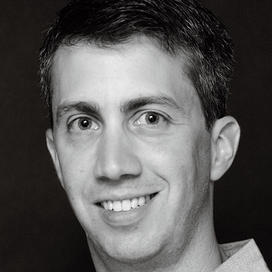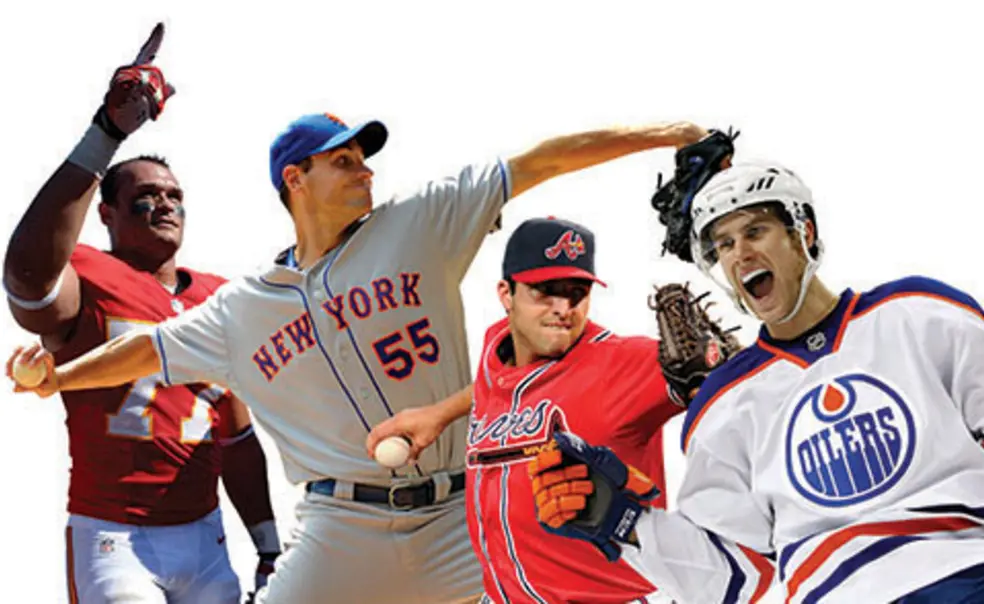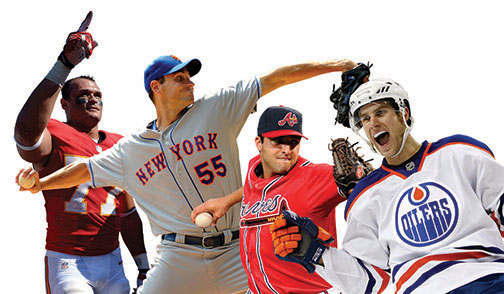Extra Point: Hitting the Big Time—Tigers Make Their Mark in Pro Sports
Like many of his classmates, Mike Catapano ’13 is trying to prove himself in an entry-level job. He spends about 10 hours a day at the office, uses evenings to brush up on some of the new things he has learned, and travels about twice a month. Working on weekends is a must.
It’s a rough gig, but the rewards are sweet: a starting salary of about $400,000 and a chance to realize a dream that he’s had since he was 8 years old.
Catapano, a rookie defensive end for the Kansas City Chiefs, is Princeton’s lone NFL player. In college, he grew into the physical build of a pro lineman (6 foot 4 inches, 270 pounds) and developed the speed and strength to chase down NFL quarterbacks. He credits his undergraduate experience — not just the football part — with preparing him for the challenges of his new job. “Princeton really tests you,” he said. “You learn to be a professional in everything you do.”

For a small but growing number of alumni, “everything” includes playing in a major pro sports league. Five alumni have seen time on the ice in the National Hockey League this season (newcomer Taylor Fedun ’11 and veterans Jeff Halpern ’99, George Parros ’03, Darroll Powe ’07, and Kevin Westgarth ’07), and three played in Major League Baseball last year (David Hale ’11, Will Venable ’05, and Ross Ohlendorf ’05). When Hale threw his first pitch for the Atlanta Braves in September, Venable, an outfielder for the San Diego Padres, was waiting in the batter’s box.
Princeton could add to its list of pros in 2014: Caraun Reid ’14, Catapano’s former linemate, has been identified as an NFL prospect; a handful of hockey and baseball alumni are playing in the top minor leagues; and All-Star pitcher Chris Young ’02, hampered by shoulder injuries in the last four seasons, is aiming for a comeback this spring.
Young was on campus Dec. 10, joining Venable, Ohlendorf, and Hale for a Princeton Varsity Club-sponsored panel discussion of life in pro sports. He told PAW that Princeton’s success in producing major leaguers reflects a culture put in place by coaches and administrators. “You can get the best education possible and realize your dreams athletically,” he said. “It’s not one or the other.”
Young, a veteran of nine major-league seasons, embodies both sides. He went pro after his sophomore year but remained a full-time student, negotiating with his team to arrange a schedule that kept him at Princeton as often as possible. When his minor-league teammates were lounging on the couch watching TV, Young was sitting at a kitchen table, books spread out before him, completing take-home exams. And when the Class of 2002 graduated, so did he.













No responses yet